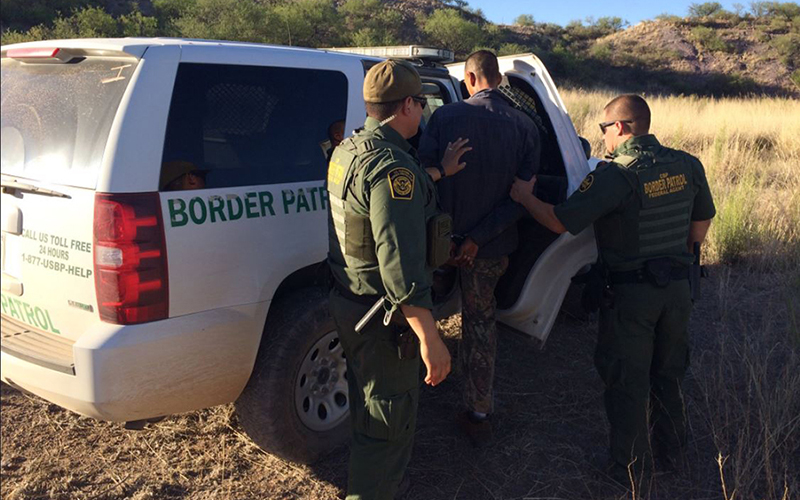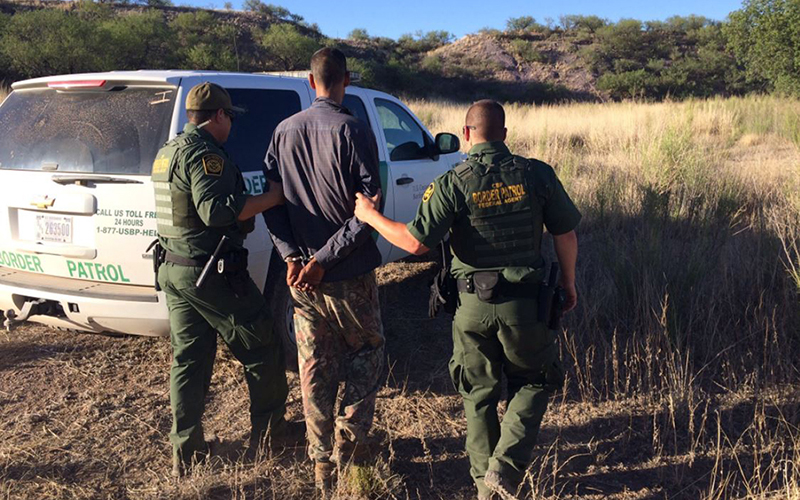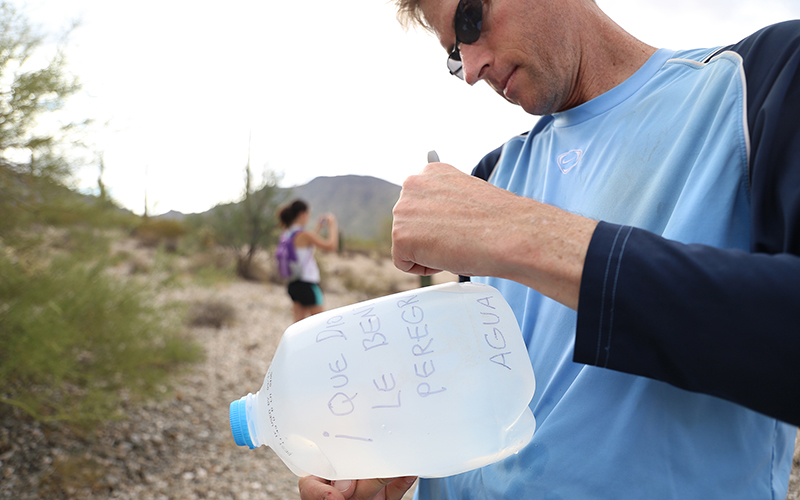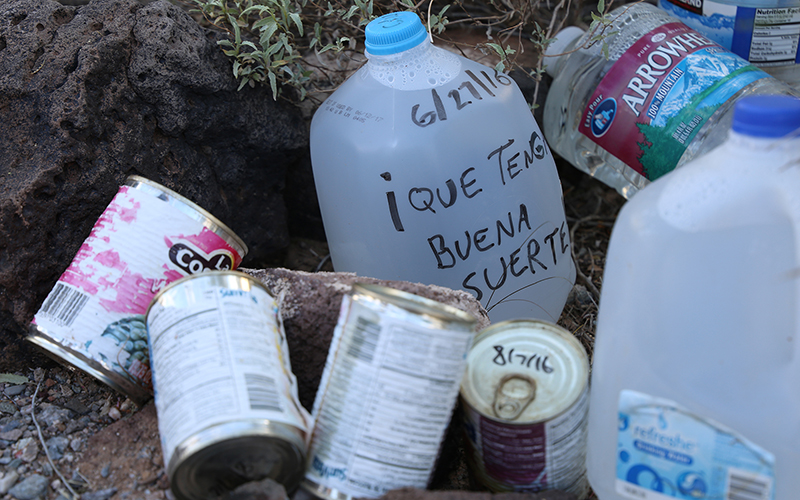WASHINGTON – When Jim Marx got the call that Border Patrol agents were monitoring a No More Deaths camp that was helping immigrants endangered while crossing the desert border last week, his first thought was, “Here we go again.”
It wasn’t the first time the humanitarian group and Border Patrol have butted heads, but it wound up being the most contentious, after a reported 30 agents, 15 trucks and a helicopter “descended” on the camp to arrest four immigrants who were being treated there.
“It was an incredible display of, I don’t know what – it was almost like a siege,” said Marx, who volunteers with the organization that provides water, necessities and aid to immigrants crossing the border.
The arrests drew national headlines and led to charges that Border Patrol is obstructing the humanitarian group’s care. And it left Border Patrol officers feeling as if they were being vilified for just enforcing the law.
“We’re the ones that are considered the villains, but in reality, we have a cause,” said Art Del Cueto, the vice president of the National Border Patrol Council, the union for agents. “We don’t make the laws, we’re just here to enforce them.”
Tucson Border Patrol spokesman Daniel Hernandez would not go so far as to “say that we’re vilified, but I am going to say that there a lot of misconceptions of what we actually do.” The story surrounding last Thursday’s arrests at the camp near Arivaca, Hernandez said, has been “obstructed by emotions and by misguidance.”
That story began on June 13, when Border Patrol agents were tracking the four immigrants when they wandered into the No More Deaths camp near Arivaca, one of a handful where the group provides aid to border-crossers.
Hernandez said officers reached out to camp volunteers, who sent the agents away. Officers watched the camp, which was on private property, for the next two days before returning Thursday with a search warrant, agents and vehicles.
“We don’t know how many people are in the camp,” said Hernandez, who confirmed the size of the force that turned out for the arrests. “We don’t know how many things are in the camp … We have to be prepared as any law enforcement agency.”
The four immigrants were arrested without incident, Hernandez said. One of those arrested was Lucindo Diaz-Hernandez, who had a prior felony conviction for possession with the intent to distribute more than 600 pounds of marijuana, according to a Customs and Border Protection release.
But Marx, who went to the camp after being called Tuesday, said blocking off camps like the one in Arivaca has become a Border Patrol strategy to catch immigrants that ends up endangering them, especially during summer months.
-Video courtesy No More Deaths
“It’s extremely difficult to provide humanitarian aid if we’re going to be surveilled,” Marx said. “I was out there and the stress level just goes up. What happens is, the camp is a magnet – it draws people who are in trouble and are needing the aid – it then becomes a trap.”
No More Deaths says more than 7,000 people have died in the desert since 1998 and that human remains are found in the Arizona desert about every three days.
But Hernandez said No More Deaths provides just a fraction of the medical aid that Border Patrol agents do in the course of their work.
“Them saying they provide the only source of first-aid or they provide rendering assistance to migrants – it’s completely inaccurate,” Hernandez said Wednesday. “Last year, we conducted 1,400 rescues in the Tucson sector alone. That is more than most small fire departments in the country.”
That was echoed by Del Cueto, who credited No More Deaths for “a valiant effort” to help reduce deaths in the desert, with what he called insufficient resources.
“We’ve often said that, even though underappreciated, I believe Border Patrol is one of the largest humanitarian groups in the entire country from the amount of people that we save,” Del Cueto said.
But critics said that current U.S. policy will make it harder for anyone – Border Patrol agents or No More Deaths volunteers – to reach those immigrants in need of assistance.
Rep. Raul Grijalva, D-Tucson, said in prepared statement Monday that he fears heightened border enforcement under the Trump administration “will only deter migrants already putting themselves in peril’s way from seeking water, food and shelter when they need it most.”
The Arivaca arrests prompted a No More Deaths online petition – which had nearly 800 signatures Wednesday – calling on Border Patrol to “end the policies and practices that cause death and suffering of migrants and refugees along the border” and to end “interference with all humanitarian aid efforts.”
“The heat itself is enough to deal with, much less having to worry that we’ll be under surveillance,” Marx said.
But Hernandez said Border Patrol’s policy is to provide necessary medical assistance to migrants apprehended along the border.
“Our priority is to save lives,” he said. “We don’t believe it should be a death sentence to cross the desert illegally.”



